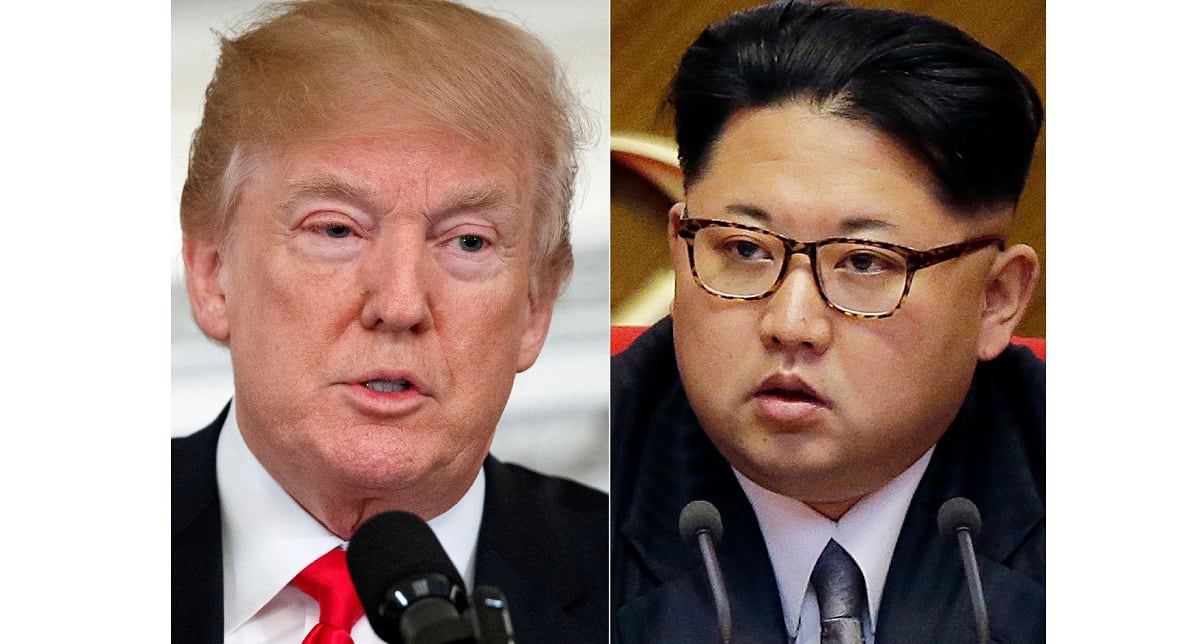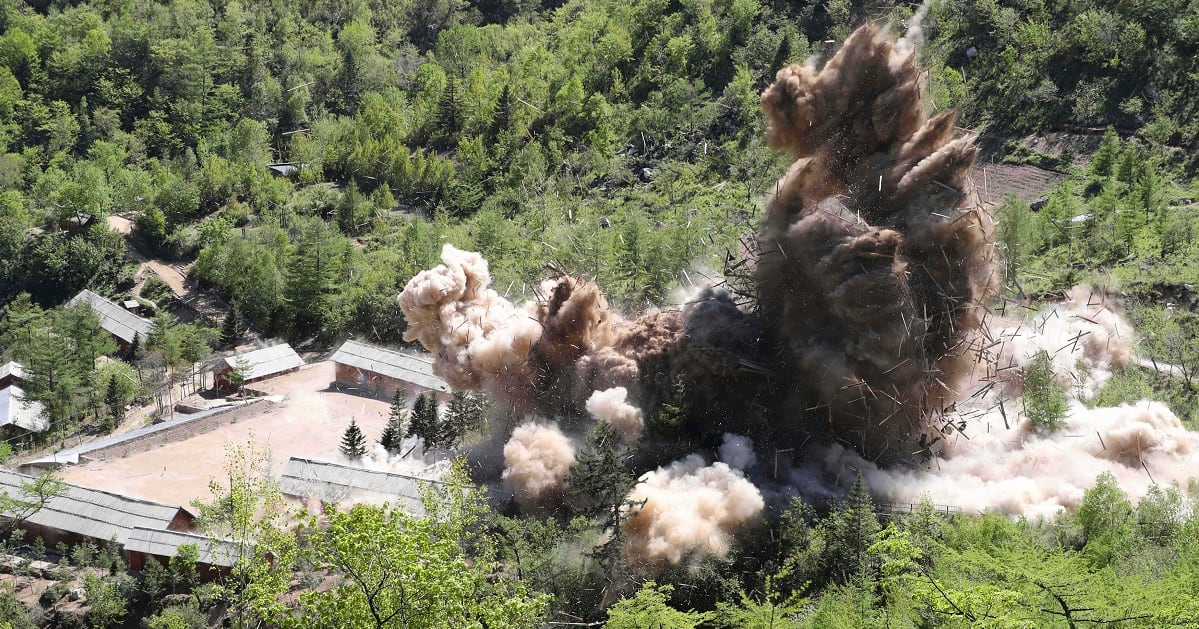UNITED NATIONS — U.S. Secretary of State Mike Pompeo will travel to North Korea next month to prepare for a second summit between leader Kim Jong Un and President Donald Trump meant to jump-start stalled efforts to rid the North of its nuclear bombs, the State Department said Wednesday.
Pompeo was invited by Kim to Pyongyang, the North’s capital, “to make further progress on the implementation” of agreements made during a June summit in Singapore between Kim and Trump and to set up another leaders' meeting, State Department spokesperson Heather Nauert said.
Her statement came after Pompeo met Wednesday with North Korean Foreign Minister Ri Yong Ho at the U.N. General Assembly meetings in New York.
RELATED

Pompeo said on Twitter that his meeting with Ri was "very positive. There were no other immediate details about what the diplomats discussed.
"Much work remains, but we will continue to move forward," Pompeo said.
Also at the U.N. session, South Korean President Moon Jae-in said high-level diplomacy has "removed the shadow of war" that hung over the Korean Peninsula last year as Kim and Trump threatened each other with destruction during a series of increasingly powerful North Korean weapons tests.
Experts believe those tests put the North close to being able to accurately target anywhere on the U.S. mainland.
"Over the past year, something miraculous has taken place on the Korean Peninsula," Moon said in an address to world leaders. "We have crossed the barriers of division and are tearing down the walls in our heart."
Moon met last week with Kim in Pyongyang and has been the leading force behind the summitry. He and others hope another Trump-Kim summit will ease widespread skepticism that Kim will actually relinquish an arsenal that many believe Pyongyang sees as the only major guarantee of the Kim dynasty’s continued authoritarian rule.
RELATED

Diplomacy has stalled following Kim's vague promise at the Singapore summit to work toward "complete denuclearization" of the Korean Peninsula in exchange for U.S. security guarantees.
At the heart of the impasse: a North Korean demand for a declaration to formally end the Korean War before it takes any major disarmament steps. That war ended in 1953 with a ceasefire, not a peace treaty.
Washington, however, wants the North to first provide a list of the contents of its nuclear arsenal before agreeing to that war declaration, which could remove a big piece of diplomatic leverage over the North.
Also Wednesday, Russian Foreign Minister Sergey Lavrov warned that dismantling an Iran nuclear accord would threaten global efforts to halt North Korea's nuclear program.
Lavrov and others defended the 2015 Iran deal at a U.N. Security Council meeting chaired by Trump about non-proliferation. Trump pulled the U.S. out of the accord, arguing it wasn't tough enough on Iran, and is threatening new sanctions.
Lavrov said dismantling the accord would "be counterproductive for the efforts under way now to denuclearize the Korean Peninsula.
___
Follow Foster Klug on Twitter at @APKlug. AP writer Angela Charlton contributed to this report from the United Nations.





